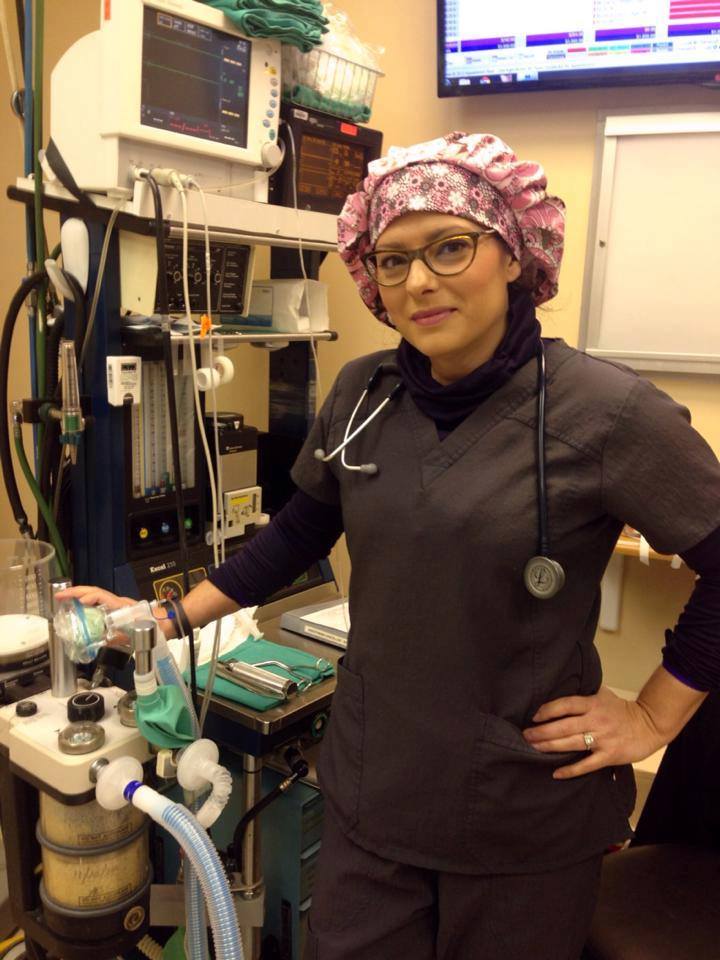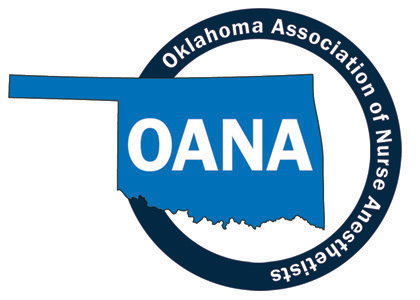Conference Pricing | Speakers | Register | Sponsor OpportunitiesConference Full ScheduleRegister for the conference by March 5th before the Early Bird rates expire!
|
5:00-9:00 p.m. |
Pre-Conference Session |
 BLS/ACLS/PALS Recertification Course
BLS/ACLS/PALS Recertification Course
Speaker: Bill Humphrey, NRP, BGS
5:00-6:00 p.m. - Basic Life Support (BLS) - Recertification
- Describe the steps of CPR
- Describe the signs and action steps for severe airway obstruction in the responsive and unresponsive victim.
- Describe the links in the Chain of Survival
- Describe the signs and symptoms of 4 common life-threatening emergencies; cardiac arrest, choking, stroke, heart attack
6:00-7:30 p.m.- Advanced Cardiac Life Support (ACLS) - Recertification
- Recognize & initiate early management of peri-arrest conditions that may result in cardiac arrest or complicate resuscitation outcome.
- Demonstrate proficiency in providing BLS care, including prioritizing chest compressions & integrating AED use.
- Manage cardiac arrest until return of spontaneous circulation, termination of resuscitation or transfer of care.
- Identify and treat ischemic chest pain & expedite the care of patients with acute coronary syndromes.
- Identify and treat ischemic chest pain & expedite the care of patients with acute coronary syndromes.
- Demonstrate effective communication as a member or leader of a resuscitation team & recognize the impact of team dynamics on overall team performance.
7:30-9:00 p.m. - Pediatric Advanced Life Support (PALS) - Recertification
- Describe the timely recognition and interventions required to prevent respiratory and cardiac arrest in any pediatric patient.
- Describe the systematic approach to pediatric assessment by using the initial impression, primary and secondary assessments and diagnostic tests.
- Describe priorities and specific interventions for infant and children with respiratory and or circulatory emergencies
- Explain the importance of effective team dynamics, including individual roles and responsibilities, during a pediatric resuscitation
- Describe the key elements of post-resuscitation management
Saturday, March 27, 2021
Thank you to our Saturday Headline Sponsor:

|
|
|
7:45 - 8:00 a.m. |
Opening Statements - OANA President, Leah Coyle, CRNA |
8:00 - 9:00 a.m. |
General Session |
 Politics of Pain (Specifically relates to Novitas Reimbursement on the Federal Level)
Politics of Pain (Specifically relates to Novitas Reimbursement on the Federal Level)
Speaker: Scott Rigdon, MPH, CRNA
This content will examine the development of pain policy and clinical prac tice as it relates to political decision making and public policy. In addition, the influence of pharmacological entities in the develoment of these policies and practices
Learning Objective:
Examine and explore public policy, clinical practice and the resultant pain policies adopted by facilities.
9:00 - 10:00 a.m. |
General Session |
 *Ketamine Old Drug & Novel Uses for PTSD and CRPS
*Ketamine Old Drug & Novel Uses for PTSD and CRPS
Speaker: Scott Rigdon, MPH, CRNA
This content will explore Ketamine infusions in the current clinical practice environment as well as the use of Ketamine for chronic refractory depression, PTSD and CRPS.
Learning Objective:
Examine and discuss the use of Ketamine for CRPS, TRD/CRD, PTSD as well as the pharmacodynamics and pharmacokinetics of Ketamine
10:00 - 10:30 a.m. |
Break |
10:30 a.m. - 11:30 a.m. |
General Session |
 Anesthesia for Patients with Substance Abuse
Anesthesia for Patients with Substance Abuse
Speaker: Dina Velocci, DNP, CRNA
Nearly 130 million Americans suffer from various forms of chronic pain. When these patients present for procedures or surgery requiring anesthesia, routine
opioid-based anesthetic techniques are not sufficient. There is a requirement for a multi-modal alternate approach that is required to achieve pain relief.
Learning Objectives:
- Explain the physiology of the changes in the pain pathways in a chronic pain patient
- Identify different anesthetic techniques to augment the routine anesthetic for chronic pain patients
- Analyze providers perspectives on the management of chronic pain patients
11:30 a.m. -12:30 p.m. |
General Session |

The Power of Influence - Winning Support in a Dynamic Culture
Speaker: Dina Velocci, DNP, CRNA
Leadership is about creating a vision for the future, designing social architecture that shapes culture and values, inspiring and motivating followers, developing personal qualities, and creating change within a culture of integrity. Leadership can be integrated with management to achieve the greatest possible outcomes. The goal is for the attendees to gain a self-awareness of importance in the vulnerability in leadership that is required for success.
Learning Objectives:
- Explain the importance of providing direction, alignment, relationships, personal qualities, and outcomes
- Explain traditional management functions and distinguish the differences between leadership and management
- Classify the primary reasons for leadership derailment and provide strategies to avoid it.
12:30 - 1:30 p.m. |
Lunch Break |
1:30-2:30 p.m.
General Session |
*Botox for Cosmetic and Non-Cosmetic Uses
Speaker: Scott Rigdon, MPH, CRNA
This content will explore the use of Botox for cosmetic and none cosmetic uses. The development of Botox, the use of Botox in the clinical setting as well as the pharmocodynamics and pharmacokinetics of Botox.
Learning Objective:
Examine, discuss and illustrate the use of Botox for cosmetic and non cosmetic clinical uses
2:30-3:30 p.m.
General Session
*Enhanced Recovery After Surgery (ERAS): What Can Anesthesia Contribute
Speaker: Garry Brydges, DNP, MBA, ACNP-BC, CRNA
ERAS is quickly becoming the new norm in patient outcomes. CRNAs play a pivotal role on transforming healthcare delivery across the phases of ERAS. Historically, CRNAs have under appreciated the value they bring outside of the perioperative period and intangible contributions throughout the perioperative phases of care.
The learner will be able to:
- Describe the role of Opioid-Sparing Techniques in Anesthesia within ERAS.
- Describe the outcomes achieved with opioid-sparing compared to traditional techniques and the value CRNAs impart within an overall ERAS program.
- Differentiate the value of quality versus quantity of anesthesia through Opioid-Sparing Strategies within ERAS programs beyond the perioperative phases of care.
3:30 p.m. Break
3:45-4:45 p.m. |
General Session |

AANA Update
Speaker: Mike Anderson, DNP, CRNA, ARNP
This session will be a review current AANA issues associated with member engagement, advocacy, reimbursement, educational and learning initiatives. There will also be a discussion regarding trends in anesthesia practice based on the most recent, available AANA data as well as how the current healthcare transformation can impact anesthesia practice in Oklahoma.
1) Identify trends in anesthesia practice based on the most recent, available AANA data.
2) Discuss key AANA issues associated with member engagement, advocacy, reimbursement, educational and learning initiatives.
3) Determine how current healthcare transformation impact anesthesia practice trends in
Oklahoma
Sunday, March 28, 2021
7:30 a.m. |
Meeting open for Login |
8:00 - 9:00 a.m. |
General Session |
 Neuro Anesthesia
Neuro Anesthesia
Speaker: Mike Anderson, DNP, CRNA, ARNP
This session will be a discussion of neuro anatomy and physiology as well as a review of common neuromuscular disorders and their specific pathophysiology and specific anesthetic management for these disorders.
1. Recognize and understand neuromuscular anatomy and physiology
2. Understand pathophysiology associated with common neuromuscular disorders
3. Recognize signs and symptoms of various neuromuscular disorders
4. Discuss anesthetic management for specific neuromuscular disorders
9:00 - 10:00 a.m. |
General Session |
 Health Care Policy on the Opioid Crisis: The Value of CRNAs
Health Care Policy on the Opioid Crisis: The Value of CRNAs
Speaker: Garry Brydges, DNP, MBA, ACNP-BC, CRNA
Opioids are killing people and CRNAs have a role in mitigating the opioid crisis. CRNAs possess an opportunity to be the drivers of health care policy within the opioid crisis. The opportunity to define a CRNA’s contributions economically and legislatively remain as uncharted territory. This lecture serves to describe the economic forces a CRNA can wield through practices changes in the future.
The learner will be able to:
- Understand how their (CRNA) care will impact patient outcomes and the economic consequences implemented by CMS
- Describe the cost-savings a CRNA can generate for hospital systems
- Translate the economic impact CRNAs make on healthcare delivery
10:00 a.m. Break
10:30 - 11:30 a.m. |
General Session |
 Pacemakers and Defibrillators: Simply the Basics
Pacemakers and Defibrillators: Simply the Basics
Speaker: Garry Brydges, DNP, MBA, ACNP-BC, CRNA
As the population ages, longevity imparts technologies (i.e. pacemakers and defibrillators) that challenge the everyday anesthetic. An intimate understanding of these technologies and how our care influences the device behaviors under anesthesia is crucial. A brief overview of the basics and the critical anesthesia considerations during preoperative evaluation are essential to ensuring the patient’s safety under a CRNA’s care.
The learner will be able to describe:
- Indications for Cardiac Pacing
- Pacemaker components: Modes and Codes
- Pacemaker Behavior
- Defibrillator Basics
- Malfunctioning and troubleshooting
- Anesthesia Considerations
|
|
|
11:30 a.m. - 12:30 p.m. |
General Session |
 *New Anticoagulations and Their Uses
*New Anticoagulations and Their Uses
Speaker: Dina Velocci, DNP, CRNA
New anticoagulants are being developed daily with greater efficacy with safer patient profiles. As anesthesia providers, it is imperative to understand the nuances in the pharmacokinetics in providing safe regional anesthesia.
Learning Objectives:
- Explain the pathophysiology of the human clotting pathway
- Identify and examine the differences between anticoagulant drugs
- Explain the different time protocols for anticoagulants and administering safe regional anesthesia.
12:30-1:30 p.m.
General Session
 Leadership: How Do I Develop My Skills?
Leadership: How Do I Develop My Skills?
Speaker: Garry Brydges, DNP, MBA, ACNP-BC, CRNA
One of the most underappreciated skills is leadership competency assessment. A basic description on leadership and leadership development is imperative for any individual to understand. A self-reflection on strengths and weaknesses is imperative to define one’s passion for leadership opportunity. Once you understand yourself, the opportunity to pursue leadership opportunities becomes more clear.
The Learner will be able to:
- Identify core elements to evaluating leadership style.
- Describe opportunities for enhancing leadership skills.
- Identify core characteristics defining great leaders.
*Denotes approved pharmacology/therapeutics credits.
REGISTER HERE
Register for the conference by March 5th before the Early Bird rates expire!
